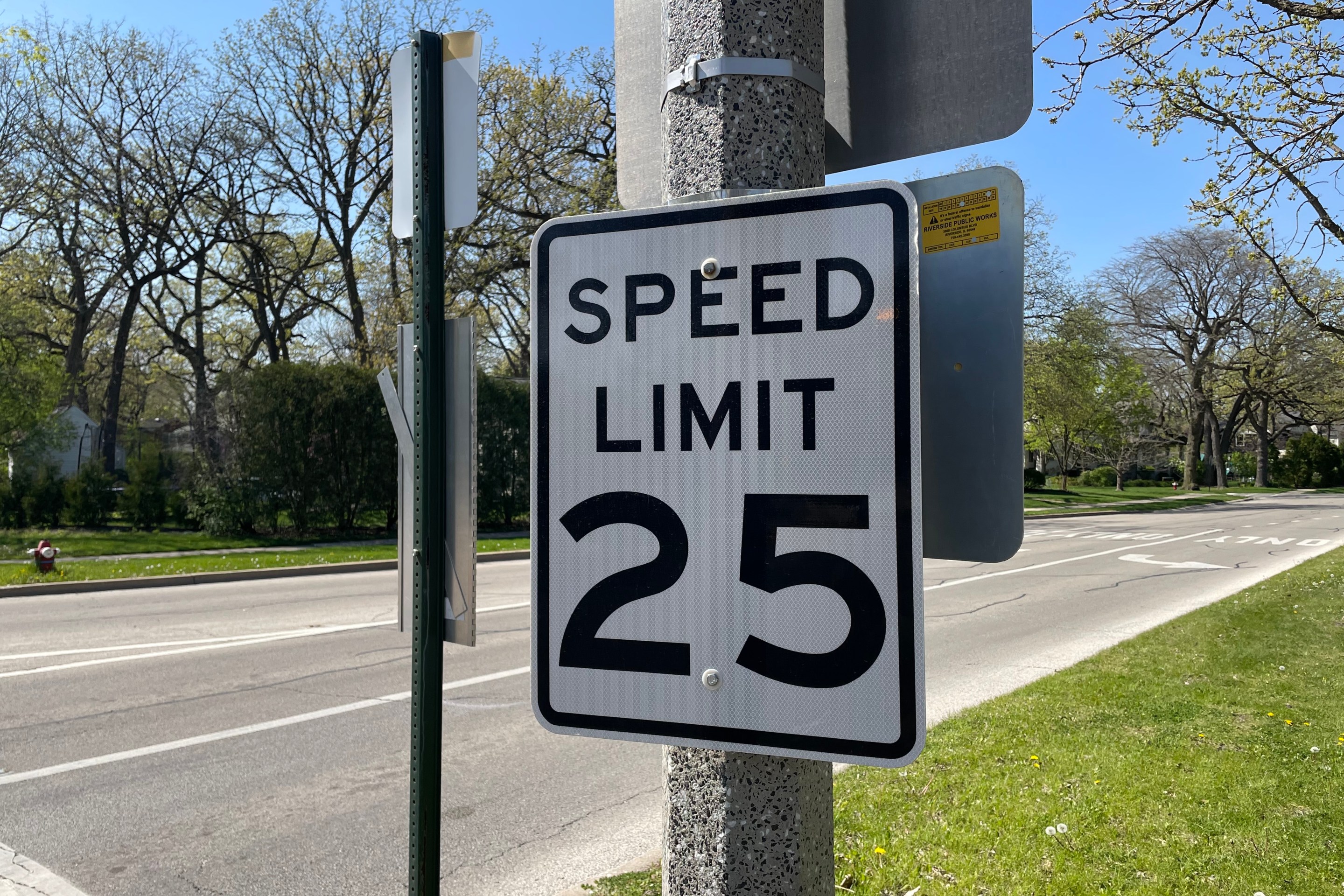Ventra Will Be Anything But a Smooth “Retail Experience”
12:53 PM CDT on March 28, 2013
Editor's note: Streetsblog accepts guest posts with viewpoints different than our own. Lynn Stevens is an urban planner, blogger at Peopling Places, and long-time neighborhood booster for Logan Square where she’s been an active participant in Bike/Walk Logan Square, the Milwaukee Avenue Arts Festival, the Logan Square Corridor Development Initiative, and the (now defunct) Zoning Advisory Committee.
Man walks into a coffee shop, orders a cup of coffee, reaches in his pocket for cash.
Barista: “That’ll be $3.00.”
Man: “I thought coffee was $2.25.”
Barista: “It is, but we charge you 25¢ for the cream.”
Man: “But I don’t want cream.”
Barista: “We charge you for it whether you want it or not. And 50¢ for the limited use cup.”
Man: “That’s outrageous! That's false advertising.”
Barista: “There is a way around it.”
Man: “Oh, okay. How?”
Barista: “You can buy our coffee card.”
Man: “Ok, let me do that.”
Barista: “That’ll be $5.00.”
Man: “What?! Now you’re going to charge me $5.00 for a cup of coffee?!”
Barista: “Well, after you buy your card, you can go online or call the 800 number and give them your name, address, phone number, date of birth, Social Security number... Ha ha. Just kidding about that last one! But you register the card and then you can immediately use the $5.00 value. It’s designed to save patrons time and money, and provides a unique opportunity to combine your coffee account with a debit card for other retail purchases.”
Man: “But I still only want a $2.25 cup of coffee.”
Barista: “You can use the balance on your card next time you come in."
Man: “But it’ll be two years before I’m back in Chicago.”
Barista: “Oh,” said quietly and with disappointment.
Man: “What?”
Barista: “If you haven’t used the card in 18 months, we charge you $5.00 a month to make sure you don’t lose the $3.75 balance on your card.”
Man sighs with exasperation.
Barista: “Unless,” said with some hope.
Man: “What?”
Barista: “You could use a debit or credit card.”
Man: “Why didn’t you tell me that in the first place? I just want a $2.25 cup of coffee…black…today.
After man swipes his credit card (without an RFID chip), the machine prompts him to verify the amount of $3.00.
Man: “What?!!!!!”
After reading his recent article on Ventra, I joked with Steven Vance that even he must acknowledge that he covered many points in order to make it "clear" that the Ventra card was "simple," and that he updated the post to make it even more "clear." Clear and simple it is not.
While previously a 5-day-a-week Chicago Transit Authority train rider, a recipient of the employer-provided benefit, a Chicago Card Plus user, and someone who’s been riding the CTA long enough to remember using tokens, for the past several years I have been an infrequent rider with no RTA benefit for whom the Chicago Card Plus no longer had value. I add money to the same magnetic stripe fare card as needed, I still mostly ride the train, and I live close enough to a train station to add money to my fare card even if it’s a bus I need to take.
If the CTA actually set out to “mirror the retail experience,” as was quoted in the article, there wouldn’t be so many confused people. I don’t know about you, but the above scenario isn’t the kind of retail experience I’m used to, nor one I’m willing to accept.
If Ventra did "mirror the retail experience," there wouldn't be such confusion. People are used to using credit cards and cash to make purchases. They're not used to paying 33% premiums to use cash. Only recently can retailers charge/pass along the actual premium they incur for using credit/debit cards, for example.
They're not used to having to buy a debit (Ventra) card, and they're certainly not used to paying a monthly fee for not using a debit (Ventra) card. This inconvenience non-use fee can be circumvented by reporting a lost card and getting a new one only when you're ready to use it again, so it doesn't make much sense except as a gotcha fee.
Since it costs RTA $2.60 to buy a blank Ventra card, retrofit it with a photo ID, process and mail it, why will the CTA charge its customers $5 for a card with no photo that is purchased on-site rather than mailed? And why $5? The least CTA could do would be to make it evenly divisible by a fare, e.g. $2.25 or $4.50. Sorry, but leaving 50¢ on my card is not going to induce me to spend $1.75 more to take a ride I don’t need to take. But whether it’s a 50¢ balance or a full fare, either way CTA takes more money from me. Gotcha.
If a paper ticket is embedded with an RFID chip that a machine will read, why must it be loaded with a transfer whether a customer wants one or not? Why can't it be used until it is worn out so customers only pay 50¢ each time they need a new paper ticket? (With the magnetic stripe cards, CTA could have implemented such a "deposit" type system, like the MTA in NYC, so that customers kept their cards for re-use therefore substantially reducing the 35 million cards printed annually.)
If rather than the "retail experience" motivation, the motivation is the law mandating a regional fare payment/sharing system by 2015, Ventra is still missing a substantial piece of the puzzle with no buy-in from Metra. The law mandates the direction CTA is going, but might it have been possible to add features to the 11-year-old Chicago Card and 9-year-old Chicago Card Plus for all this for a better transition and/or until all agencies are on board?
My conclusion is that the motivation is, as with so many other Chicago initiatives, all about revenue. CTA hopes that people will come to use their transit-debit card as they might use any other bank card so that CTA will benefit from the fees. This is the same reason retailers got into the credit card business: because it’s a money-maker. CTA hopes that people who don’t have bank accounts and access to bank cards will use the Ventra debit card with all its associated fees. [Streetsblog learned today that CTA will earn $500,000 annually from non-fare Ventra transactions, including advertising and use of the Ventra prepaid debit card.]
So far Ventra’s looking like a failure of execution before it’s even started. When the Chicago Card/Plus was introduced, a “carrot” of a fare bonus was offered to encourage adoption of the new fare system. This time around CTA chose to use a “stick” of higher fares for those who can least afford the penalties. I find the advantages CTA is touting as hollow, predatory and patronizing. I anticipate longer lines at rail stations in order to load Ventra cards, and at grocery stores when the months change for those bus riders who use 30-day passes.
I acknowledge that others have different experiences using CTA and that there are Ventra card advantages for some that don’t benefit me, like being able to purchase special passes at train stations, as well as some that could benefit me, like the ability to reload the card with a credit card at train and retail stations. I’m not opposed to taking advantage of technological advancements, but technology will continue to change and at a faster and faster pace. The next change might be in 5 years. I'm not clear how spending $454 million (or $508 million) to save $50 million over 10 years makes sense. Perhaps CTA means versus spending $500 million over 10 years without the change? However, the next change in technology might be here well before those 10 years pass.
Stay in touch
Sign up for our free newsletter
More from Streetsblog Chicago
State legislators pushing for merging CTA, Pace, and Metra into one agency spoke at Transit Town Hall
State Sen. Ram Villivalam, (D-8th) and state Rep. Eva-Dina Delgado (D-3rd), as well as Graciela Guzmán, a Democratic senate nominee, addressed the crowd of transit advocates.
Today’s Headlines for Tuesday, April 30
Equiticity and ATA: Passing a 25 mph speed limit should be combined with street redesigns that calm traffic
Equiticity, a mobility justice nonprofit, says the new speed limit shouldn't involve increased enforcement, which it says would disproportionately impact drivers of color
Johnson appoints one West Side pastor to CTA board, then nominates another West Side pastor for RTA board
Supporters argue that, despite his lack of transit expertise, Ira Acree’s social justice experience and political connections could be an asset for the RTA board.




